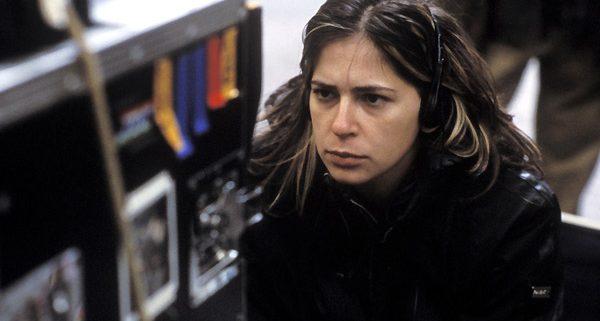Gender representation must be tackled in film industry
As a cinema and media studies student at the School of Cinematic Arts, I’ve had the amazing opportunity to dissect film and television under specific critical lenses I would’ve never thought to use had I not been here. Classes taught on 1960s culture as portrayed, have all effectively given me a broad scope to look at media and entertainment for the last three years. Writing this column has also helped broaden my view point and taught me how to examine the industry more closely than I would have ever imagined.
However, despite my knowledge and enduring interest for women in film, I never took a gender studies class until this semester. I decided to enroll in Professor Keeling’s Gender, Sexuality and Media class taught at SCA. Even though we’re only two weeks into the year, I already feel my perception and (mis)conceptions changing, as we’ve already had to discuss Beyoncé’s multi-faceted visual album Lemonade and confronted the unfortunate facts behind female directors in television through a short documentary by Bloomberg.
In the documentary, a number of female directors described the appalling state of women in television, with just 14 percent of women directing television from 2009 to 2014. At the end of the documentary, female action director Lexi Alexander, known for being the first woman to direct a superhero movie, directed a movie that also happened to be the worst-performing Marvel movie to date. Because of poor box-office results, Alexander argued that she was black-listed in the film industry and now struggles to find work. Because of the film’s low box-office results, Alexander believed she was denied a chance to redeem herself as a filmmaker because of her gender, something that men in the film industry do not struggle with. In her closing statement, Alexander revealed that had she a chance to go back and do it all over again, she would’ve never entered the film industry at all. This wasn’t the most heartening of final remarks to say the least.
When I first arrived at the University three years ago, I did not know that Women of Cinematic Arts was an organization that existed on campus. However, during my sophomore year, I desperately attempted to attend their meetings. Even though USC’s film school has almost equal representation among males and females, many of us were told early on that the film industry is going to be much harder for individuals with two X chromosomes. Despite my well-intentioned efforts, I never attended a Woman of Cinematic Arts meeting due to night classes and a packed schedule.
Now, in my senior year, I have no excuse. As my awareness for gender discrimination within the film industry increases, it feels more important than ever to become involved in championing equality across all spectrums.
This past year, Women of Cinematic Arts launched an entirely new website replete with interviews from female alumna and resources on involvement and help within the industry. Additionally, they also announced a new festival that will take place throughout the fall and spring that specifically focuses on feminist media and women in the industry.
At the Feminist Media Festival, board members of the organization will host a variety of events throughout the year to supplement what is already being offered at the School of Cinematic Arts. There will be an opening ceremony on Sept. 15 and a special award ceremony in early April for media submissions. With workshops to help students learn about the importance of female representation in both the media and industry, the Feminist Media Festival aims to showcase the benefits of even gender representation.
Throughout the year, participants may also submit a short film or media project that meets certain expectations of the Feminist Media Festival — teams must be half female, the characters/story must pass the Bechdel test and actors must not be paid.
With the newly created festival, it’s difficult not to believe that there is growth and possibility out there for women, despite what the numbers say. I have to believe, as a woman, with more exposure there will be more opportunities for change. For now, I will dedicate my time toward being an active member of WCA while also producing a short film with female representation in mind.
Minnie Schedeen is a a senior majoring in cinema and media studies. Her column, “Film Fatale,” runs on Wednesdays.

